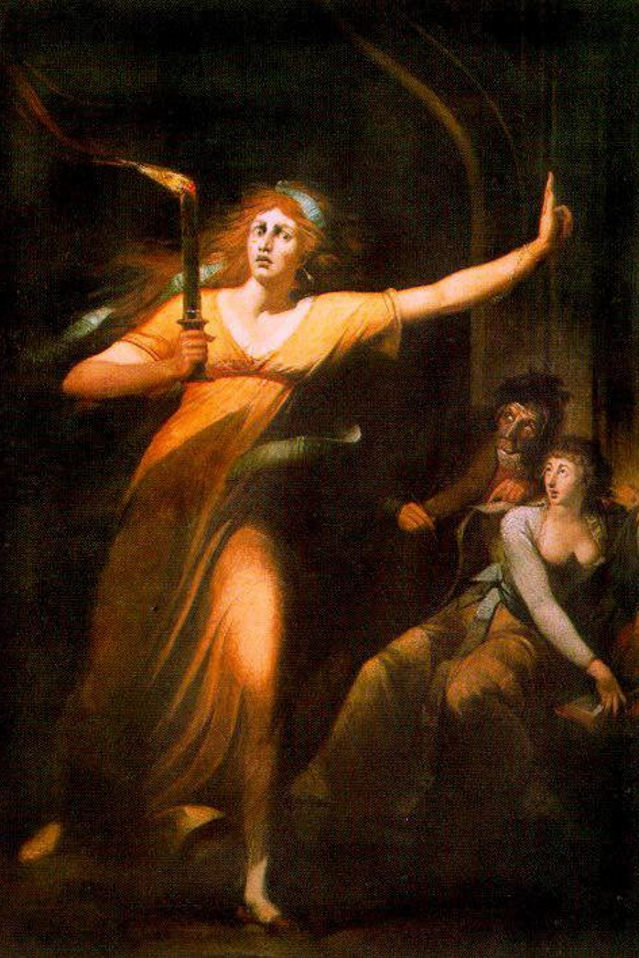
“It’s a fascinating contrast to the ball-busting tongue lashing she gives her husband when he starts to have second thoughts before the murder of Duncan.” “She’s basically doing the Shakespearean equivalent of psyching herself up in front of a mirror like people do before a prize fight or a TED talk or a stand-up gig,” says researcher and writer Rebecca Huntley. The words she unleashes conjure up a heady mix of ambition, violence and supernatural malevolence. If there was any doubt about the depths of Lady Macbeth’s depravity, those are swept away in her soliloquy in Act 1 Scene 5. Which Shakespeare soliloquy blows your mind? Share your favourite on Twitter, Facebook, Instagram or LinkedIn. Here’s the second from their bunch of 10 classics. Lady Macbeth is asking those spirits to strip away her femininity and make her a man, so that she can perform the cruelest of cruel crimes and kill King Duncan.We asked an expert panel to cherry pick some of their favourite soliloquies. Before calling upon diabolical forces to fill her “from the crown to the toe, top-full of direst cruelty’, Lady Macbeth requests of the same “spirits” that they “unsexes me here”. She refers the castle as “my battlements” not Macbeth castle, so it is almost as if Lady Macbeth has stripped Macbeth of his rower in the castle and placed it on herself. Seeing as how Macbeth will not kill the king, Lady Macbeth takes it upon herself to plan the kings death and kill him herself. Lady Macbeth appears to have a manly power in this instance because she is taking over. “The fatal entrance of Duncan under my battlements “suggests that upon entering the castle, King Duncan will die by either the hands of the malicious Lady Macbeth or Macbeth himself. Meanwhile, we know that Lady Macbeth is delivering her soliloquy from within Machete’s castle in Inverness.ĭue to being in her own house, Lady Macbeth senses that she has more power and that King Duncan can and will be killed in Machete’s castle. Lady Macbeth sees evil as an almost positive thing in being successful in your ambitions. Lady Macbeth seeks evil at every corner, hoping it will capture her husband and make him thrive for the same ambitions that she does, so that he will finally kill the king and fulfill the prophecy. Lady Machete’s soliloquy is sinister and evil and he reveals so much of her true nature that the audience learns of what she plans to do with the king. T he meaning of illness in this context would be evil or even mad and Lady Macbeth is saying that it is what you need to complete your ambitions.

” When Lady Macbeth then complains of her husband that he is not “without ambition but without the illness should attend it” she appears to be giving “illness” a positive meaning from her standpoint.
#Lady macbeth full
Lady Macbeth sees her husband as a weak little man who is too full of “the milk of human kindness.

In other words Lady Macbeth is in some way calling her husband weak and ‘not a real man’ cause he is too kind and could not commit such a gruesome crime. This in turn would lead to thermometer’s associate milk with kindness because a mother would show nothing but kindness to her failings.

” Theatre’s would associate this “milk of human kindness” with a nurturing mother and her gentle touch for her baby. For example she describes him as “too full o’ the milk of human kindness.
#Lady macbeth series
Impressively, Lady Macbeth uses a series of metaphors to count her husband’s main failings as she sees them. Dialogue can only tell you so much whereas soliloquy can almost put you into the mind of the character and make you see every thought the character is thinking, o matter how gruesome it may be. When audience members first lay their eyes on Lady Macbeth, they see her as a sweet and almost innocent woman but when she is finally alone the audience sees her true nature. Shakespeare uses soliloquy first to expose Lady Macbeth true nature so that her thoughts and motives may be uninterrupted and that her speech can be delivered in such a powerful way that the audience is swayed and somehow taken aback.


 0 kommentar(er)
0 kommentar(er)
